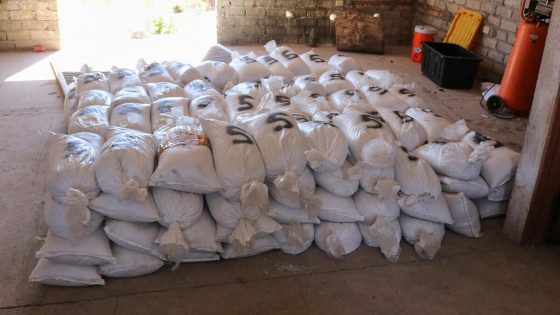In a dramatic turn of events on Monday, Spanish police announced the arrest of three notorious figures linked to the infamous Neapolitan mafia, known as the Camorra. This operation unfolded in Marbella, a sun-soaked coastal town that has increasingly become a haven for international criminals. The suspects, described as “extremely dangerous,” are wanted in Italy for serious offenses including attempted murder, weapons trafficking, and money laundering.
- Three suspected mafia members arrested in Spain
- Crimes include attempted murder and money laundering
- Arrests conducted in Marbella, Spain
- Operation involved cooperation with Italian police
- Suspects considered "men of honor" in Camorra
- Previous arrests linked to Colombian drug cartels
The police’s operation targeted a high-profile mob boss, whose identity remains undisclosed, along with his son and son-in-law. According to authorities, the elder suspect is recognized as one of the “heads of a dangerous family clan” within the Camorra hierarchy. Spanish officials detailed how their investigation began when they discovered that the clan’s chief had fled Italy to evade law enforcement. He had been living in a house in Marbella, fortified with what police described as “extensive security features”—a bunker-like domicile he rarely left.
The first breakthrough came when officers arrested the boss’s son as he ventured into the city center. Reports suggest that he displayed keen evasiveness, employing a series of maneuvers to avoid detection. “Before he was arrested, the son made several attempts to throw off the police,” a police spokesperson stated, identifying the urgency of the situation. Following this initial arrest, authorities quickly apprehended the clan leader and his son-in-law as they tried to flee the fortified residence. The son faces a daunting 30-year prison sentence, while his father-in-law is facing up to 20 years, both men being charged under stringent laws regarding drug trafficking and smuggling, among other accusations.
During their apprehension, police publicly demonstrated their success by posting videos on social media, showcasing officers escorting the handcuffed suspects. “Within the Neapolitan Camorra, those arrested are considered ‘men of honor’ because they abide by a strict code of conduct,” police clarified in a news release, adding further complexity to the mafia’s intricate societal structures.
This incident intersects with a broader history of mafia-related crimes that have plagued Italy and the international community. Just last October, Italian authorities announced the arrest of Luigi Belvedere in Colombia, a fugitive who was believed to be facilitating connections between the Camorra and South American drug cartels. His capture, along with current developments in Spain, signals a possible tightening noose around the networks that enable organized crime.
The operation, undertaken in collaboration with Italian law enforcement, showcases the international effort to dismantle such criminal enterprises. Authorities are cautiously optimistic, acknowledging that these arrests are just one piece of a much larger puzzle. The recent activities in Marbella illustrate how even the most fortified criminal figures are not immune to the long arms of international law.
As the investigation unfolds, the future remains uncertain for these captured suspects. With pending court proceedings, there is anticipation surrounding the legal strategy that will be employed by their defense teams, particularly considering the potential for extensive prison sentences. The authorities plan to utilize evidence gathered during the investigation to build a strong case, and the prosecution’s strategy will likely hinge upon establishing the deep-rooted connections of these individuals within the Camorra’s operational framework.
While Marbella might be known for its beaches and nightlife, it now finds itself at the center of a critical chapter in the ongoing battle against organized crime. This case serves as a stark reminder that beneath its glamorous surface lies a connection to darker global networks—an ongoing narrative that continues to evolve.

































